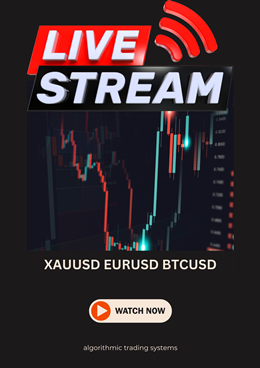- 78% of executives would sacrifice positive net present value projects if it would make them miss quarterly earnings expectations.
- Long term executive compensation plans increase operating performance in the long term, but decrease it in the short term. It’s a difficult trade-off for investors and managers.
- We’ll provide you with a tool to use to assess whether companies increase long term or short term value.
We closed our article by mentioning the CEO of General Electric (NYSE: GE) who is spending more than $20 billion a year on buybacks attempting to push stock prices higher, even though GE has a terrible track record related to buybacks. We concluded that shareholder value in this case is being destroyed because someone wants a higher paycheck in his last few years before retirement.
No matter what GE does, the topic of creating value is essential for investing, especially for long term investing. Today, we’ll discuss a few ways of determining whether the management of the companies you own is really focused on creating long term value or more focused on creating short term value in order to pad their paychecks.
Boston University researcher Caroline Flammer and Richard Ivey’s School of Business Pratima Bansal have empirically investigated how long-term orientation impacts firm value.
Before digging into the results of the investigation, the short term corporate orientation is a known fact that markets and investors try to sweep under the rug. Graham, Harvey and Rajgopal found that a striking 78% of corporate executives would sacrifice projects with positive net present value if it would endanger hitting quarterly earnings estimates. With the majority of corporate executives focused on the short term, it shouldn’t be a surprise that the majority of the S&P 500 currently spends more on buybacks and dividends than what they earn.
Flammer and Bansal find that companies who adopt long-term management incentives are able to counteract managerial myopia and hence align managers’ interests with long-term value creation. Shareholder proposals that focus on long-term executive compensation yield a positive abnormal return of 1.14% on the day of the vote in comparison to rejected shareholder proposals.
From a performance measure perspective, Flammer and Bansal find that long term focused compensation decreases operating performance in the short run while it increases operating performance in the long run. Long term focused managerial compensation leads managers to invest in projects that are costly in the short run, but pay off in the long run. Further, such companies tend to invest more in innovation, research and development, and stakeholder relationships.
There is a big debate over what is “creating shareholder value.” For some, it’s all about maximizing the short-term stock price while for others it implies creating as much value as possible over long periods of time. The first requires cutting on costs, lowering research and development, and spending as much as possible on buybacks or dividends. All of the above will improve financial metrics, possibly beat quarterly analysts’ estimations, and increase short-term stock prices.
For others, creating shareholder value is maximizing the value a shareholder can get over an indefinite period of time. Unfortunately, there are only a few companies that focus on this.
An essential financial metric that shows whether management is increasing long term shareholder value is tangible book value. Not many companies disclose it, but if tangible book value goes up, value has been created and vice versa. A company that uses book value as a financial metric is Berkshire Hathaway, but to avoid always using the same examples in our articles, another example is J.P. Morgan (NYSE: JPM).
JPM’s financial highlights
Tangible book value eliminates goodwill, buybacks, and other accounting gimmicks like adjusted earnings that cover value destruction.
Buybacks are a perfect example of short term stock price boosting while destroying long term value. When a company repurchases shares at a higher price than tangible book value, it exchanges cash for something less valuable, even if it looks like a fair exchange due to the equal price. At a price to book value of 2, a company spends one dollar to buy tangible assets that are worth fifty cents. Focusing on tangible book value will enable you to hold onto the companies really focused on creating long term shareholder value. If this is what you’re after, of course.
The two companies that buy back shares the most are Apple (Nasdaq: AAPL) and General Electric (NYSE: GE). As their buyback activity is at price to book values of 4.9 and 3.4 respectively, it lowers long term shareholder value by lowering tangible book values.
The figure below shows how AAPL’s trailing earnings are $8.31 and it pays $2.18 in dividends. This should have increased book value by $6.13 in the last 12 months, but AAPL’s book value went up only $3.43 in the last three and a half years.
The situation with GE is even worse, aggregate three year earnings are positive and the aggregate dividend payout ratio is below 100%. However, GE’s book value decreased by $4.16, or 30% since 2015.
AAPL’s and GE earnings, dividends and book values
High buyback levels have increased GE’s stock price in the last few years, but have certainly decreased long term shareholder value. If you’re a short-term investor in GE, stick around but get out before the party ends. If you’re a long-term investor, avoid such shareholder value destroying companies.
The first thing you have to take away from today’s article is to have your investing goals aligned with managements’ and other shareholders’ goals.
If you’re a long-term investor and your management is myopic, then a clash is bound to happen in the future, unfortunately at your expense. Management can easily increase short term performance by taking on more debt or lowering their liquidity, however, when the economic cycle turns, you will be the one dealing with losses.
On the other hand, short term focus increases short term value, therefore, if you are a short-term investor, you should search for companies with myopic management but be sure to get out before the situation starts to deteriorate.
As we are in a 7-year bull market created by low interest rates, the market is going to differentiate between short and long term focused management only when the economic cycle turns, interest rates increase, and liquidity problems arise. This will specifically hit companies who have borrowed in order to buy back more shares and increase dividends sacrificing investments in innovation and development.
source: investiv

 Events
Events Blog
Blog











